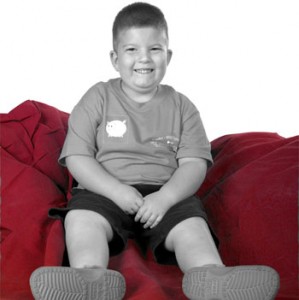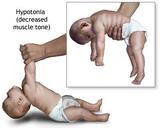Prader Willi Syndrome (PWS) is a rare condition that causes extreme hunger and affects one in 10,000 to 30,000 individuals of the population. Read on to know more about this syndrome as well as its causes, symptoms, diagnosis and treatment.
What is Prader Willi Syndrome?
Page Contents
- 1 What is Prader Willi Syndrome?
- 2 Prader Willi Syndrome History
- 3 Prader Willi Syndrome Symptoms
- 4 Prader Willi Syndrome Stages
- 5 Prader Willi Syndrome Causes
- 6 Is Prader Willi Syndrome Inherited?
- 7 Prader Willi Syndrome Diagnosis
- 8 Prader Willi Syndrome Treatment
- 9 Prader Willi Syndrome Prognosis
- 10 Prader Willi Syndrome Prevention
- 11 Prader Willi Syndrome Complications
- 12 Prader Willi Syndrome Management
- 13 Prader Willi Syndrome Life Expectancy
- 14 Prader Willi Syndrome Association
- 15 Prader Willi Syndrome Pictures
It is an uncommon genetic disease that makes a patient experience extreme hunger, even when he or she has consumed food. This is a congenital disorder, meaning it is present from birth.
It affects both girls and boys and is common in people of all ethnic origins.
Prader Willi Syndrome History
It was early in the year 1887 when Langdon-Down reported about an adolescent girl with obesity, Hypogonadism, short stature and mental impairment. She was the first patient with Prader-Willi syndrome who was described with its characteristic symptoms that were then attributed to Polysarcia. It was only later that the signs came to be associated with PWS.
Prader Willi Syndrome Symptoms
As aforesaid, this condition is congenital (present at birth) characterized by a number of signs and symptoms that may begin to appear as early as the first year of life. Newborns with this disease are generally smaller than healthier kids of similar gestational age. They also display other symptoms like:
- Development of irregular regions on skin surface that appear as stripes, bands or lines
- Skeletal abnormalities in the limb
- Extremely tiny hands and feet compared to the rest of the body
- Retarded development of sex organs, with testicles hardly being felt in the scrotum in boys
- Problems in swallowing and sucking
- Low weight gain, with infants being extremely lightweight
- Weak crying sound
- Poor muscle tone, manifested by loosely extended elbows and knees during activities like playing
- Facial abnormalities, such as a small, down-turned mouth, a thinned upper lip and “almond-shaped” eyes
Children affected with this syndrome suffer from intense hunger even when they are filled. They crave for foods and can do almost anything to eat. These intense hunger pangs lead to problems like morbid obesity and an uncontrollable weight gain. Morbid obesity may be directly responsible for physical ailments like lung failure, which can cause death of sufferers due to reduced oxygen level in bloodstream and right-sided heart failure.
With increasing age, other symptoms begin to manifest. Children suffer from hormonal imbalance, which leads to retarded development of sexual organs. Muscle tone deficiency becomes more prominent and the hunger pangs become more severe and frequent. Affected children may also suffer from other problems like:
- Sleep disturbances
- Acute behavioral problems
- Possible learning disabilities
- Possible speech problems
- Nearsightedness
- Unusually fair skin than other family members
- Abnormally light-colored hair
In advanced years, puberty may get delayed or incomplete. Majority of PWS sufferers are unable to beget (make children). They may suffer from reduced intellectual growth and also exhibit other behavioral problems like:
- Temper tantrums
- Stubbornness
- Compulsive behavior
Both males and females affected with PWS have underdeveloped genitals. They have a short stature, small hands and feet as well as distinctive facial features.
Prader Willi Syndrome Stages
The symptoms of Prader-Willi Syndrome are classified into two distinct stages.
From birth to 1 year
Typically, infants with PWS suffer from problems in growth and weight gain. They suffer from weak muscle tone (Hypotonia) which makes them unable to drink from a bottle. Such babies may require feeding through tube or any other special feeding technique until their muscles become stronger. PWS infants often have a much reduced development than other children of the same age.
From 1-6 years
Between 1 and 6 years of age, PWS patients are suddenly found to suffer from terrible hunger pangs. They suffer from persistent sensations of hunger and may actually begin overeating or eating after regular intervals. Parents of PWS sufferers are forced to lock the doors of their refrigerators and kitchen cabinets to restrict access to food. Kids with this syndrome are found to gain weight quickly at this age, which may lead to life-threatening problems in future.
Prader Willi Syndrome Causes
The condition results from the non-existence of a gene on the part of chromosome 15. In healthy children, a copy of this chromosome is passed down from both parents. Most patients with PWS do not have a copy of the genetic material from their father’s chromosome. Remaining patients with this disorder are often found to have two copies of chromosome 15 from their mother.
The changes in genetics occur as random events while the reproductive cells (sperm and eggs) are being formed. Genetic alterations may also occur in the early stages of embryonic development. Typically, patients have no family history of this disease.
Is Prader Willi Syndrome Inherited?
Most PWS cases are not inherited, especially those resulting from an omission in the chromosome 15 from father or by Uniparental Disomy from mother. It is only in rare cases that a genetic change responsible for this disease (such as a genetic alteration that inactivates genes on the chromosome 15 from paternal side) can be inherited from a previous generation.
Prader Willi Syndrome Diagnosis
As previously mentioned, the signs of this condition manifest themselves at birth. Doctors usually look out for physical abnormalities like:
- Light body weight
- Poor muscle tone
- Narrowing of the head at the temples
- Almond-shaped eyes
- Floppiness
- Undescended testicles (testicles that fail to move into the scrotum) in male infants
If such physical abnormalities are detected, doctors may order blood tests to be performed. In older children affected by PWS, laboratory tests may reveal symptoms of morbid obesity, such as:
- Increased carbon dioxide level in blood
- Presence of insulin higher than normal level in the bloodstream
- Failure to show response to luteinizing hormone releasing factor
- Abnormal glucose tolerance
- Lack of oxygen supply
- Possible hip and knee problems
- Potential signs of right-sided heart failure
- Weight gain
In most cases, laboratory tests help make a definitive diagnosis of the condition. Behavioral problems in affected children can also help doctors make a more accurate detection. Special genetic tests conducted on the chromosomes of patients can aid in detection of irregularities that are characteristic of PWS.
Prader Willi Syndrome Treatment
Various types of treatment approaches are available for curing Prader-Willi syndrome. These involve symptomatic relief as well as curative measures for correcting physical abnormalities caused by this condition.
Hormone treatment
Administering hormones can help restore normalcy in the growth pattern of patients. Hormones let the body of PWS sufferers mature at a pace that is similar to that of other children of a similar age. Hormone replacement can help correct lack of enough sex hormone levels during puberty. Injecting growth hormones (GH) have also been found to increase agility and physical strength in children with PWS. However, growth hormones may have a negative impact on the function of legs in affected children. Parents should consult doctors regarding the possible side effects of GH on their children.
If male infants are found to have an extremely small penis, testosterone therapy can help correct the condition.
Dietary modifications
Obesity is the biggest threat to the health of PWS sufferers. Limiting calorie intake can control the obesity of children. It is essential for parents and family members to make PWS patients stick to a low-calorie diet. Such children should be supplied with enough fiber, proteins and various essential nutrients to help them maintain their emotional and physical balance. This can also help in tackling any behavioral issues exhibited by such patients.
Infants may require feeding by a tube to help them avoid weight gain.
Other approaches
Behavioral therapy can be used to control behavioral problems in children. In some instances, ongoing counseling can help an affected child manage the condition as well as have a comparatively normal degree of social interaction with other kids. Regular exercise can enhance lean body mass in suffering children.
Prader Willi Syndrome Prognosis
The symptoms of this condition weaken over time but rarely disappear completely. Some adults with PWS depend on drug therapy for their entire lives to manage the disease. During the onset of adolescence and the late stages of adulthood, proper diet and regular exercise can help affected children avoid this condition. If the symptoms are severe, it may be necessary to inject sex hormones in patients to trigger normal growth and cause the onset of puberty.
An individual with this condition requires an education that is suitable for his or her IQ. Weight control allows patients have a healthier and more comfortable lifestyle.
Prader Willi Syndrome Prevention
There are no guidelines to prevent this condition. As aforementioned, defective or missing components of paternal genes are the causes of this syndrome. However, the disease usually occurs randomly. This indicates that the disease cannot be prevented in most cases. However, parents of an already existing PWS sufferer may seek genetic counseling before having another baby. An experienced genetic counselor can help ascertain the risk of having another infant with this syndrome.
Prader Willi Syndrome Complications
Some of the possible complications of this condition are:
- Right-sided heart failure
- Diabetes
- Bone (orthopedic) problems
- Reduced fetal activity
- Obesity
- Hypotonia
- Mental retardation
- Osteoporosis
- Abnormally curved spine (Scoliosis)
- Short stature
- Hypogonadotropic hypogonadism
- Strabismus
- Tiny hands and feet
Prader Willi Syndrome Management
A child with PWS should be properly cared after to avoid the symptoms from getting aggravated. Here are some steps that can help in managing the condition.
- Carefully pick up an affected child. Infants with PWS suffer from poor muscle tone, which makes them vulnerable to slipping between hands while you lift them placing hands under their armpits.
- Make an affected child prevent binge eating and stick to a low-calorie diet. This can help the child have a normal body weight. Do not purchase high-calorie snacks.
- Store foods away from a patient and lock cupboards, pantries and refrigerators. Serve meals in small dishes to restrict amount of food intake.
- Consult doctors to supplement the calories with essential vitamins or minerals that are necessary for a balanced nutrition.
- Schedule screening tests appropriate for the patient. Consult your doctor to know how often the child should be screened for complications of Prader-Willi syndrome.
- Control weight issues and eating problems through weight monitoring, low-calorie diet, daily exercise and external food restriction.
Prader Willi Syndrome Life Expectancy
With early diagnosis and proper management of complications, PWS sufferers have a lifespan that is normal or close to normal. Some medical literatures, however, suggest that life expectancy may not be over 40 years of age in patients with acute symptoms.
Prader Willi Syndrome Association
It is an organization based in USA that comprises of professionals as well as families of PWS sufferers working together to create awareness about the disease. The establishment also offers support, provides education and finances and promotes research to enhance the quality of life of individuals affected with this syndrome.
The registered address of this organization is:
The Prader-Willi Syndrome Association (USA)
8588 Potter Park Drive, Suite 500
Sarasota, Florida 34238 USA
The institution can be contacted at:
Tel: (800) 926-4797
Tel: (941) 312-0400
Fax: (941) 312-0142
Its official website is http://www.pwsausa.org.
Prader Willi Syndrome Pictures
Here are some Prader Willi Syndrome photos that will help you get an idea about the physical appearance of patients with this condition. You may find these Prader Willi Syndrome images quite useful for your reference.

Picture 2 – Prader Willi Syndrome

Picture 3 – Prader Willi Syndrome Image
If you have a child in your family who is affected with this condition, seek immediate medical attention. Get in touch with your health care provider to make an immediate diagnosis. If detected and treated in time, the condition can be checked in time and further complications may be avoided.
References:
http://www.mayoclinic.com/health/prader-willi-syndrome/DS00922
http://www.ncbi.nlm.nih.gov/pubmedhealth/PMH0002572/
http://emedicine.medscape.com/article/947954-overview
http://www.medicinenet.com/prader-willi_syndrome/article.htm

